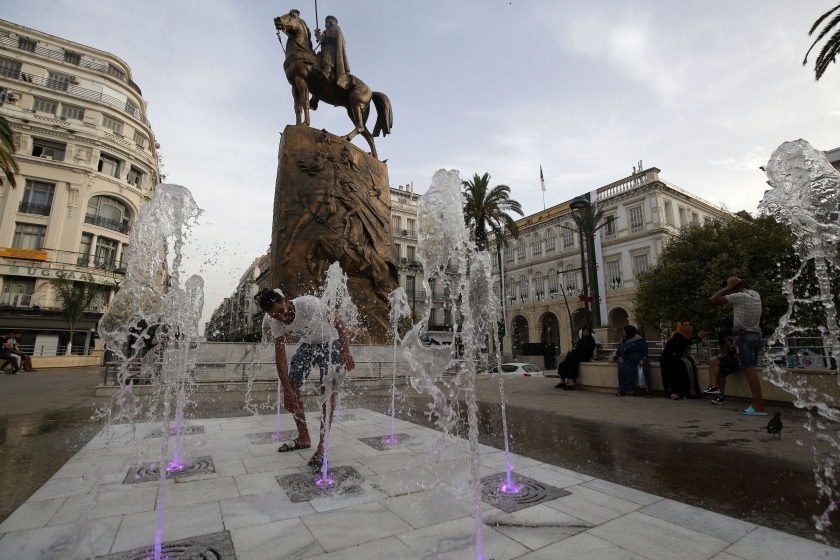
Vodafone Foundation donates €30,000 to support Mozambique over Cyclone Chido
Vodafone Foundation has pledged €30,000 to Save the Children in response to the devastation caused ...

Experts said the urban population exposed to high temperatures could increase by 800 percent, reaching 1.6 billion by mid-century, adding that cities, which are especially prone to warming, can fend off some of the worst effects of heatwaves by planting trees, restoring water bodies and tapping into other natural solutions, according to the United Nations Environment Program (UNEP).
By 2050, unless humanity dramatically lowers its emissions of climate-altering greenhouse gases, close to 1,000 cities will experience average summer highs of 35˚°C, nearly triple the current number.
Extreme heat is often fatal. A new study in the journal Nature Medicine found that in Europe alone, there were more than 61,000 heat-related deaths last summer, many in cities.
The Cool Coalition, a global effort on efficient, climate-friendly cooling assembled by UNEP, said extreme temperatures already kill 5 million people a year, with heat-related deaths rising.
Cities, home to 55 percent of humanity, could become especially hot. They are normally 5°C to 9°C warmer than rural areas as concrete buildings and sidewalks soak up and radiate sunlight. The concentration of people, cars and machinery also pushes up temperatures.
Climate experts have long warned of rising temperatures and increased risks to human health. The 2022 Intergovernmental Panel on Climate Change report painted a grim picture of what unchecked global warming looks like increased heatwaves, longer warm seasons and shorter cold seasons.
“Heat illnesses and deaths are preventable with proper awareness, resources and responses, many of which can be implemented at urban scale,” said Eleni Myrivili, Global Chief Heat Officer at UN-Habitat. She added cities can reduce heat risks by issuing early warnings of extreme heat and opening cooling centers while “radically increasing” green spaces and nature.
“The natural world offers so many sustainable, cost-effective ways of reducing temperatures,” said Steven Stone, Deputy Director of the UNEP’s Industry and Economy Division. “Many municipalities are starting to realize this, which is a crucial step in adapting to climate change and the extreme heat it will bring.”
UNEP data finds that simply planting trees on city streets would give 77 million people a 1°C reprieve on hot days. On a normal sunny day, a single tree can transpire several hundred litres of water, which represents a cooling effect equivalent of two domestic air conditioners running for 24 hours.
Urban forests and large parks also provide cooling benefits almost 1km beyond their bounds by lifting warm air above ground level and dispersing cool air. Connecting green spaces creates wind corridors that reduce local temperatures.
Furthermore, preserving water bodies, such as lakes, canals, ponds and wetlands in urban areas, can have a significant cooling effect.
In the Greek capital Athens – hit hard by rising temperatures and nearby wildfires – city officials are using a Roman-era aqueduct to irrigate a 24km green cooling corridor leading to the center of the city.
Natural solutions are especially important because they help reduce temperatures without contributing to climate change. That is in stark contrast with air conditioning, which is a potent source of greenhouse gas emissions. Nature in cities helps increase connectivity and resilience of natural habitats and support biodiversity, as recognized by the Global Biodiversity Framework adopted last year.
Along with natural solutions, cities will need to find other ways to cool themselves without feeding the climate crisis, say experts. That can include transitioning to renewable energy, incorporating passive cooling into buildings, and making changes to streets and buildings that reflect heat and encourage breezes.
Serving this end, the UNEP is developing guidelines for local governments, to be released later this year, to design more heat-resilient neighborhoods and ensure equal access to nature’s benefits within cities. UNEP has also partnered with Arsht-Rock on the Heat Action Platform, a tool for city officials to reduce the human and economic impacts of extreme heat.
Vodafone Foundation has pledged €30,000 to Save the Children in response to the devastation caused ...
The European Commission has adopted a decision to disburse €1 billion in loans to Egypt following ...
Opening the Helwan University clinic brings the total number of Safe Women Clinics to 48 ...


اترك تعليقا